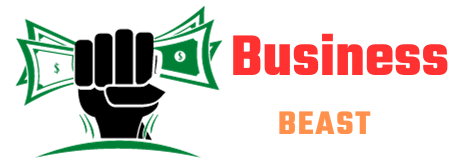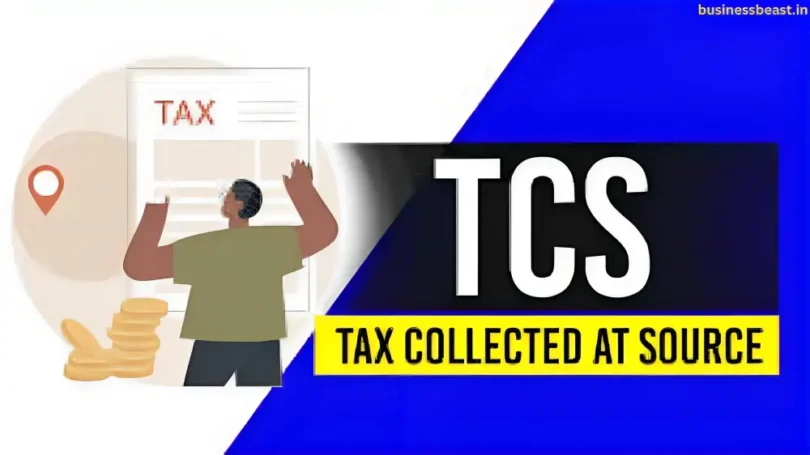The government implemented TCS (Tax Collected At Source) as a way to monitor and collect taxes at the point of sale. It is a technique used to guarantee a consistent flow of income for the government by obtaining taxes at the exact location where specific transactions take place. TCS is used in many different types of transactions across the nation and is important to the tax collection system. The purpose of this article is to examine the foundational elements of TCS, its relevance, and its effects on both individuals and enterprises.
What is TCS (Tax Collected At Source)?
The full name of TCS is Tax Collected at Source. The TCS bill is collected from the lessee or buyer and is the buyer’s responsibility. The products are listed in Section 206C of the Income Tax Act of 1961.
Look at an example to gain a better understanding of the mechanism. The customer will pay Rs. 20 total for a box of chocolates that costs Rs. 100; the Rs. 20 is the tax that was collected at the source. After that, the funds are transferred to a particular bank branch that has been permitted to accept the payments.
The buyer is not liable for paying this tax; the buyer’s responsibility is only to collect it from the buyer. The tax is meant to be collected during the sale of goods, during purchases, during cash refunds from customers, during check or draught issuance, or any combination of these, depending on which method is paid for first. This clause is found in Section 206C of the Income Tax Act of 1961.
TCS (Tax Collected At Source) Overview
| Types of Goods or Services | Rate of TCS (%) |
| Alcoholic liquor for human consumption | 1% |
| Tendu leaves | 5% |
| Timber obtained from other methods apart from leased forests | 2.5% |
| Timber obtained from leased forests | 2.5% |
| Forest produce | 2% |
| Parking Lot, Mining, Quarrying, and Toll Plaza | 2% |
| Scrap | 1% |
| Iron ore/Lignite/Coal | 1% |
| Motor vehicle purchases exceeding Rs. 10 lakhs | 1% |
| When annual turnover is more than Rs. 10 crores in the previous financial year and sales consideration is more than Rs. 50 lakhs. | 0.1% |
Understanding Buyer and Seller in the Context of TCS (Tax Collected At Source)
- Who is the Buyer?
In essence, the buyer is anyone who purchases or obtains goods. However, according to TCS regulations, not every person who purchases goods is regarded as a “buyer.” Some entities are not included:
- Public Sector Companies: These are government-owned businesses, and for TCS purposes, they are not considered normal buyers when they make purchases.
- Government Entities: The Federal Government and State Governments are included in this. They don’t fit the typical TCS definition of a “buyer” when they make purchases.
- International Entities: Additionally, foreign organizations that may be present in a nation but are not considered standard buyers include embassies, consulates, and other international bodies.
- Who is the Seller?
The person or organization that sells or provides goods is known as the seller. Under TCS, certain definitions consist of:
- Central Government: In certain cases, the government sells goods on its behalf.
- Companies: Any sizeable registered business that engages in product sales.
- Partnership Firms: Companies or enterprises where two or more people sell goods and share ownership. TCS is essentially intended to guarantee that the right amount of tax is paid and to make transactions transparent. The government can efficiently manage and track these transactions if the buyer and seller are identified.
Guidelines for Filing Your TCS Returns
- When TCS is generated at the end of each month, sellers are required to file the TCS return using Challan 281. For taxes from the prior month, it need to be finished within seven days.
- If the seller does not pay the TCS (Tax Collected At Source) on time, they will be assessed 1% of the total amount owed. Usually, this serves as a penalty that the seller is responsible for paying.
- The entire amount of tax collected in a given quarter must be reported by tax collectors/sellers on Form 27EQ in their TCS return.
- After the TCS return is successfully filed, a certificate, or Form 27D, is given out.
- Interest will be assessed before the filing of the income tax return if the tax collected at the source is not paid on time.
The Goods Covered under TCS (Tax Collected At Source)
- Trading of Goods: When these goods are used for trading, TCS collected at the source will be applicable because they are subject to duty. Buying goods from one person and selling them to another is known as trading.
- Manufacturing, processing, or producing other products: The aforementioned products are not subject to tax when they are utilized in the production, processing, or manufacturing of other goods. Therefore, TCS is not required.
Penalty of TCS (Tax Collected At Source)
Tax Collected at Source regulations in India carry hefty penalties for noncompliance. A collector may be penalized the amount of TCS that should have been collected if they neglect to collect TCS or fail to deposit the money they have collected with the government.
Interest may also be assessed on the postponed TCS deposit. Fraudulent or purposeful evasion may result in additional fines or even legal action. Collectors are subject to penalties and legal ramifications under the Income Tax Act if they fail to comply with TCS provisions, which include timely filing of returns.








Leave a Comment